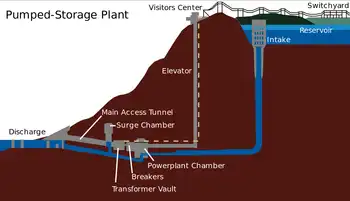California, Oregon will take over dams controlled by Warren Buffett -- and tear them down
Protective Relay Training - Basic
Our customized live online or in‑person group training can be delivered to your staff at your location.

- Live Online
- 12 hours Instructor-led
- Group Training Available
Klamath River Dam Removal Agreement advances a $450 million plan by California and Oregon, with PacifiCorp and FERC oversight, to demolish four aging hydropower dams, restore salmon runs, and support Yurok and Karuk tribal communities.
Key Points
A bi-state plan to remove four Klamath River dams, restore salmon runs, and honor tribal rights.
✅ $450M budget with shared contingency for overruns
✅ Co-licensees: California, Oregon, KRRC; PacifiCorp limited
✅ Goal: remove 4 dams by 2023 to boost salmon and tribes
Gov. Gavin Newsom and his Oregon counterpart signed a landmark deal Tuesday to take control of four aging dams targeted for removal on the Lower Klamath River, an agreement designed to push the controversial $450 million plan over the finish line.
Newsom and Oregon Gov. Kate Brown committed their states to replacing PacifiCorp -- a utility company controlled by financier Warren Buffett's Berkshire Hathaway conglomerate -- as co-licensees of the dams, which have been blamed for ruining salmon runs considered vital by California Indian tribes.
The agreement "ensures that we have sufficient backing" to get the four dams demolished, said Chuck Bonham, director of the California Department of Fish and Wildlife.
"We're finally one step closer," Newsom said on a Zoom conference call. Removing the dams lets California "right some wrongs, address some of our historic mistakes."
It will cost money if the dams really are to come down by 2023, as planned.
The project is expected to cost $450 million, including $250 million already pledged by California and $200 million contributed by PacifiCorp ratepayers on both sides of the border through surcharges that can prompt customer backlash in similar utility cases. With the deal signed Tuesday, California, Oregon and PacifiCorp will contribute $15 million apiece to a contingency fund to cover unforeseen costs, and agreed to share equally in any additional cost overruns.
Three of the dams are in Siskiyou County, the other is in southern Oregon.
The agreement represents a breakthrough for a project pursued for years by Indian tribes and environmental groups -- but fiercely opposed by Siskiyou County residents, along with congressional Republicans. Bonham said the dams' removal will lead to the "biggest salmon restoration ever."
"It's a new day and new era for California tribes," said Yurok Tribe Chairman Joseph James. "Our way of life will thrive with these dams being (taken) out."
'The river is sick, and the Klamath Basin tribes are suffering'
The Yurok and other tribes, including the Karuk and the Hoopa Valley, have been complaining about the dams for decades, saying the facilities have hurt their livelihoods and culture by disrupting salmon runs, an issue tied to regional salmon and electricity talks as well.
In 2016, former President Barack Obama's administration brokered a deal under which PacifiCorp would turn the dams over to the nonprofit Klamath River Renewal Corp., which would oversee the dams' removal.
But in July the Federal Energy Regulatory Commission, or FERC, blocked the transfer of the dams' licenses unless PacifiCorp remained a co-licensee. FERC said the nonprofit wasn't capable of handling the dam removal by itself.
That decision threatened to derail the carefully-negotiated agreement. Buffett's company didn't want to be stuck with potential cost overruns. Two weeks later Newsom wrote to Buffett and two of his executives, pleading with them to keep the project on track.
"The river is sick, and the Klamath Basin tribes are suffering," Newsom wrote. "The Klamath River dam removal project is a shining example of what we can accomplish when we act according to our values."
Tuesday's agreement makes California and Oregon the co-licensees, along with the nonprofit, and takes PacifiCorp's name off the license, as Oregon's delegation advances a wildfire-resilient grid bill to harden infrastructure. Buffett's company remains on the hook for a share of the overruns, the participation of the two states makes it less likely the costs will be onerous.
"Working together from this historic moment, we can complete the project and remove these dams," Buffett said in a statement released by Newsom's office.
FERC still needs to approve the new arrangement. "We have more work to do," Brown said.
Northern Californians oppose dam removal
The dams provide no irrigation water and little flood control to the region, and contribute little electricity at a time when regulators weigh more power plants for reliability. Nonetheless, local residents and property owners have protested against the dam removal project for years. They say the demolition process would harm the river, and would wreck the values of properties that sit on the reservoirs formed by the dams.
In 2010, voters in Siskiyou County voted by a 79-21 margin against the demolition in a non-binding vote, echoing resistance to a 145-mile transmission line in Maine that spurred debate.
Rep. Doug LaMalfa, R-Richvale, who represents the Klamath area, blasted Tuesday's agreement, citing California grid reliability pressures.
"California's quest to remove these perfectly good dams continues. Now the taxpayers of California and Oregon will be on the hook due to this agreement to pick up a multi-billion dollar expense for the cost and liability of the inevitable environmental damage this project will cause. Removing these dams will do nothing to help fish but will destroy water storage needed for firefighting and will bankrupt Siskiyou County," LaMalfa said in a prepared statement. "The dams themselves are a benefit to our overloaded power grid and the local area economy."
The dams are upriver from where farmers and federal officials clashed nearly two decades ago over water deliveries. Farmers who take water from the Klamath miles above the dams, launched huge protests after officials in 2001 shut off irrigation water from a collection of federally-owned canals to prop up coho salmon populations, with one group of activists attempting to destroy a canal gate with a saw and a blowtorch.
The following year, Vice President Dick Cheney personally ordered officials to deliver water to the farmers, resulting in a huge fish kill. The four PacifiCorp dams weren't involved in that incident. But the ensuing litigation resulted in the agreement calling for the removal of the four dams.
At the same time, construction has begun on a disputed $1 billion electricity corridor in Maine, underscoring regional tensions over large energy projects.















